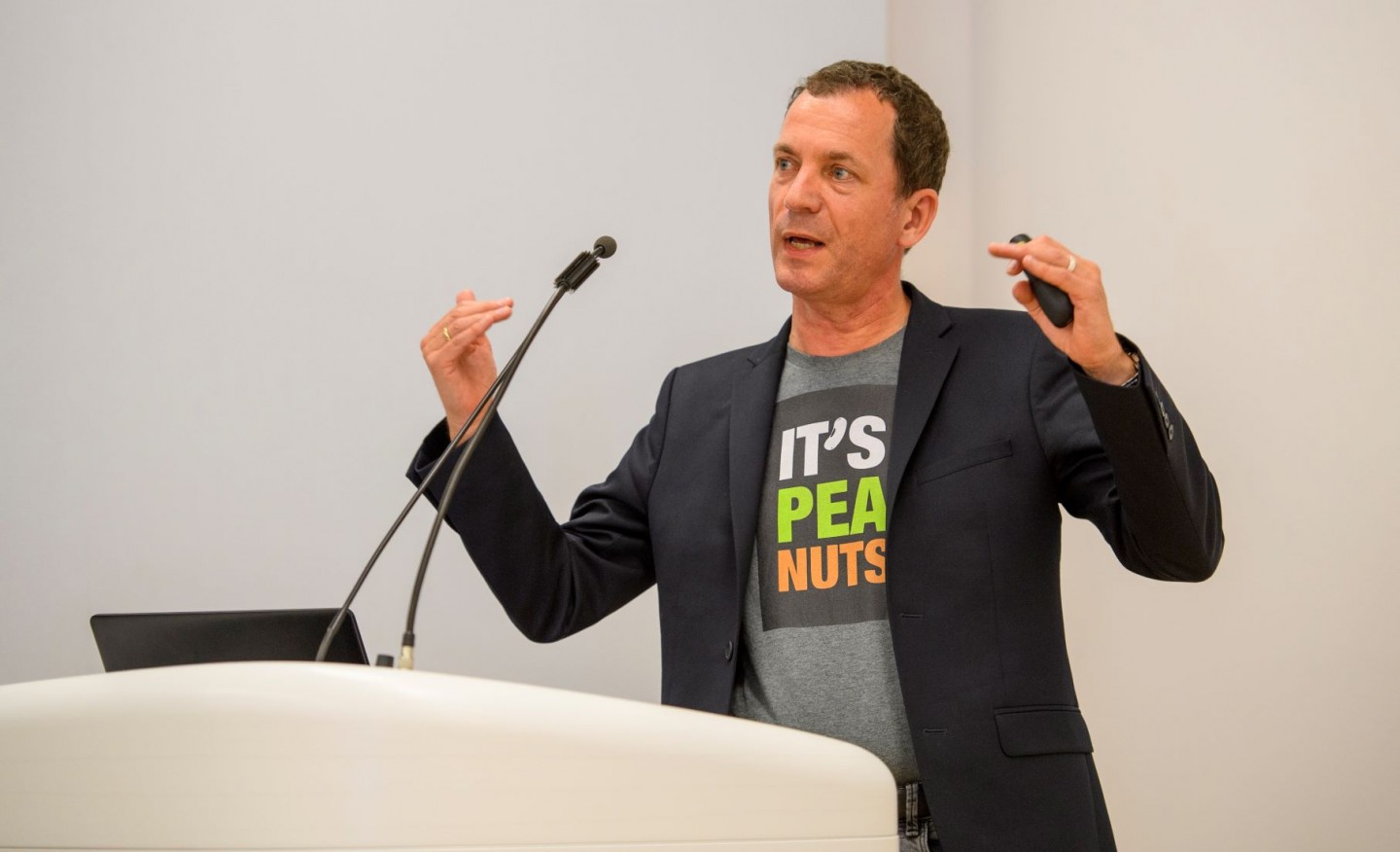
Joyce Rasquin presented data that industry and consumer interest for alternative proteins is on the rise. Therefore, a lot of products and technologies are coming to market. Examples are plant-based proteins, mycoprotein, algae absed, edible insects, as well as lab-grown meat. For feed, both insect-based and fermentation-based processes are in fast development phase. These protein alternatives are currently in different stages of scale-up and it remains a matter of time before it comes clear which sources will achieve scale. They have varying potential to grow in the market and balance the impact of our current food and agriculture system.
Prof. Luc van Loon showed that alternative proteins have varying nutritional profiles compared to animal-based proteins. In general, plant proteins do not stimulate muscle synthesis as well as dairy proteins as they may lack some essential amino acids. However, some of the emerging alternative proteins also have good amino acid profiles, with all the essential amino acids but we need to do research to learn whether they are as good as animal sources.
Prof Pieter van ‘t Veer showed that what happens if you replace meat (on an energy basis) with fruit, legumes, nuts. The environmental burden goes down, the public health goes up, but still only half the way to EAT Lancet recommendations. Nevertheless, these protein alternatives are promising as they significantly help in reducing pressure on natural resources and emissions.
Nevertheless, scaling many of these alternative protein sources faces a significant barrier in the form of consumer acceptance and regulatory skepticism. Ongoing investment is essential to scale up product development, production, and marketing.
At the same time, Dr Corné van Dooren, stressed that traditional diets with plant-based proteins such as beans and legumes should not be forgotten: they are cheap, accessible, and familiar to consumers, and they offer nutritional benefits.
Speaker profiles
Pieter van ‘t Veer is Professor of Nutrition, Public Health and Sustainability at the Division of Human Nutrition, Wageningen University. Pieter leads the Nutrition, Public Health and Sustainability formed in 2015; the mission is to develop interdisciplinary research at the cutting-edge of human nutrition, public health and environmental sustainability. Pieter van ‘t Veer has also been Professor Nutrition and Epidemiology at the Division of Human Nutrition at the Wageningen University.
Luc van Loon is Professor of Physiology of Exercise at the Department of Human Biology at Maastricht University Medical Centre. Luc has an international research standing in skeletal muscle metabolism. The main research interests of his laboratory include muscle metabolism, sports nutrition, clinical nutrition, adaptation to endurance and resistance type exercise, and the use of physical activity and/or nutritional interventions to improve health in chronic metabolic disease and aging.
Corné van Dooren is since 2007 sustainable food expert at the Netherlands Nutrition Centre (Voedingscentrum). He studied human nutrition at the Wageningen University and finished his PhD at the Institute for Environmental Studies, VU University Amsterdam 'Simultaneous optimization of the nutritional quality and environmental sustainability of diets'. He worked for different NGO’s, was editor for leading magazines in the food sector and consultant in a food safety office. Sustainable diets, food waste, labelling, protein transition, and novel foods are among his fields of expertise. Corné is 54 years old, married, cooks vegetarian meals on Saturdays and Mondays, loves hiking in the Alps, and lives in Delft, The Netherlands.
Joyce Rasquin studied international business management at the University of Maastricht and has worked for most of her career in plant-based food products: as a product manager at a meat alter-natives company, various local and international marketing roles with the European market leader in dairy alternatives, and now as the business development manager of the innovation project that is bringing canola protein to market at DSM.
Jacobine Das-Gupta is Director Sustainability at DSM with a focus on healthy and sustainable nutrition. She works with industry peers, scientists, NGOs and in coalitions to future-proof food systems, accelerate protein transitions, reduction of food loss and waste, driving affordable nutrition and reducing non-communicable diseases. Jacobine studied Industrial Design Engineering at Delft University of Technology and has held positions in applied social science, marketing, sales and sustainability in The Netherlands and France. She is guest lecturer at Dutch universities and authored several publications on sustainable development and business development, of which the book 'Your customers want your products to be green' (2011).